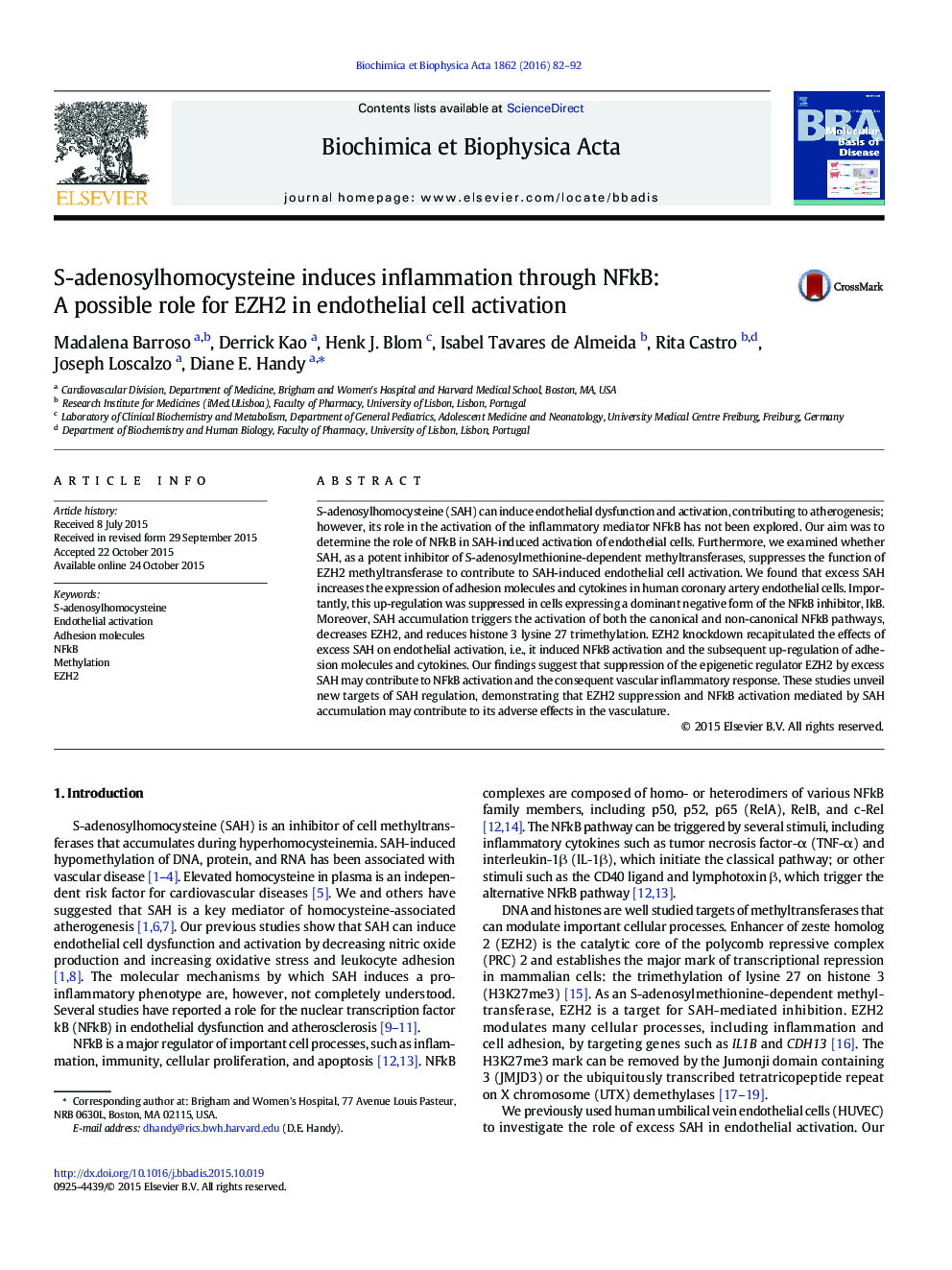| کد مقاله | کد نشریه | سال انتشار | مقاله انگلیسی | نسخه تمام متن |
|---|---|---|---|---|
| 1904469 | 1534638 | 2016 | 11 صفحه PDF | دانلود رایگان |

• Endothelial activation is triggered by S-adenosylhomocysteine (SAH) accumulation.
• Excess SAH activates both the canonical and non-canonical NFkB pathways.
• NFkB regulates the SAH-induced expression of adhesion molecules and cytokines.
• EZH2 activity and expression are impaired by excess SAH in endothelial cells.
• EZH2 suppression may mediate SAH-induced NFkB activation and inflammatory responses.
S-adenosylhomocysteine (SAH) can induce endothelial dysfunction and activation, contributing to atherogenesis; however, its role in the activation of the inflammatory mediator NFkB has not been explored. Our aim was to determine the role of NFkB in SAH-induced activation of endothelial cells. Furthermore, we examined whether SAH, as a potent inhibitor of S-adenosylmethionine-dependent methyltransferases, suppresses the function of EZH2 methyltransferase to contribute to SAH-induced endothelial cell activation. We found that excess SAH increases the expression of adhesion molecules and cytokines in human coronary artery endothelial cells. Importantly, this up-regulation was suppressed in cells expressing a dominant negative form of the NFkB inhibitor, IkB. Moreover, SAH accumulation triggers the activation of both the canonical and non-canonical NFkB pathways, decreases EZH2, and reduces histone 3 lysine 27 trimethylation. EZH2 knockdown recapitulated the effects of excess SAH on endothelial activation, i.e., it induced NFkB activation and the subsequent up-regulation of adhesion molecules and cytokines. Our findings suggest that suppression of the epigenetic regulator EZH2 by excess SAH may contribute to NFkB activation and the consequent vascular inflammatory response. These studies unveil new targets of SAH regulation, demonstrating that EZH2 suppression and NFkB activation mediated by SAH accumulation may contribute to its adverse effects in the vasculature.
Figure optionsDownload high-quality image (199 K)Download as PowerPoint slide
Journal: Biochimica et Biophysica Acta (BBA) - Molecular Basis of Disease - Volume 1862, Issue 1, January 2016, Pages 82–92